Small-town cleanup makes big impact on waterway
These Project Clean Stream volunteers picked up trash in a Marydel, Md., drainage ditch.
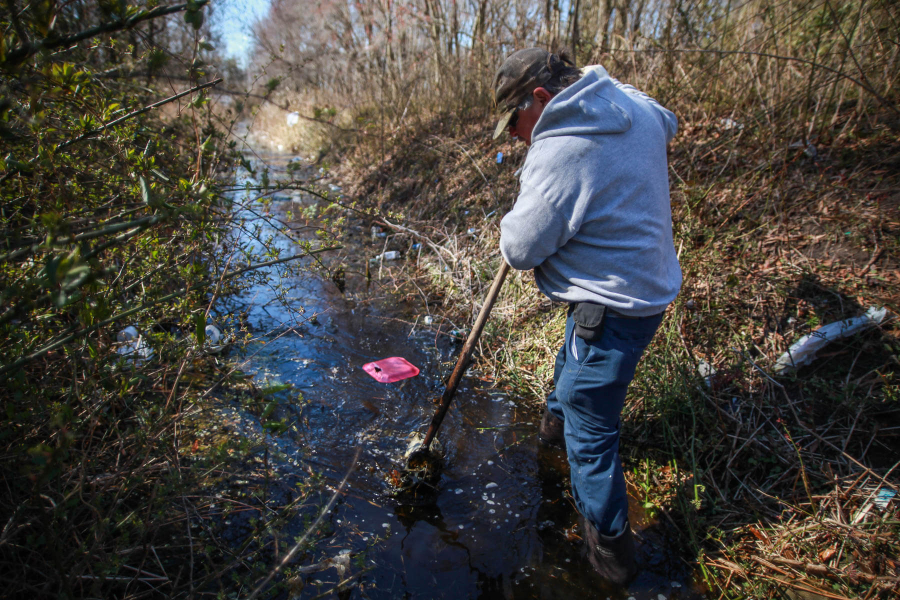
For the past decade, the Alliance for the Chesapeake Bay has led Project Clean Stream--a vast network of organized annual trash cleanups along the Bay's many tributaries--to help clean up the Bay and connect residents to their local waterways.
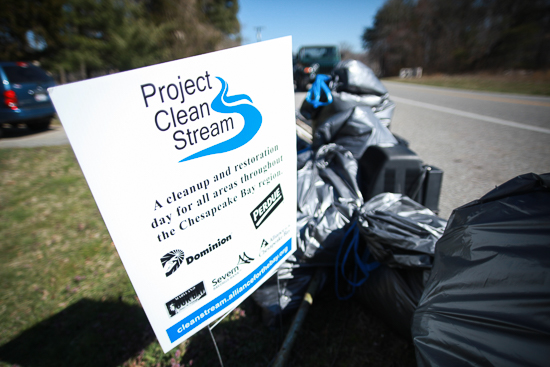
During this year's unified day of service on Saturday, April 6, a group of 13 volunteers gathered near the small town of Marydel on Maryland's Eastern Shore, where resident Carol Sparks (not pictured) had reported an illegal dump site along a drainage ditch running adjacent to her property.

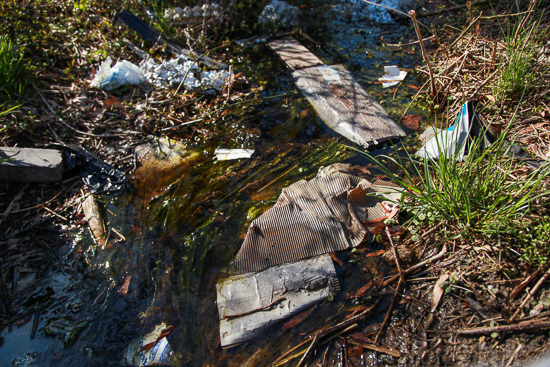
According to Sparks, residents from two nearby trailer parks often travel along the foot path adjacent to the ditch, and some have been dumping trash here for years. "I've called everybody and it seemed like nobody wanted to do anything about it. I finally contacted Debbie Rowe, the mayor of Marydel, and she's the one who organized this group, bless her heart."
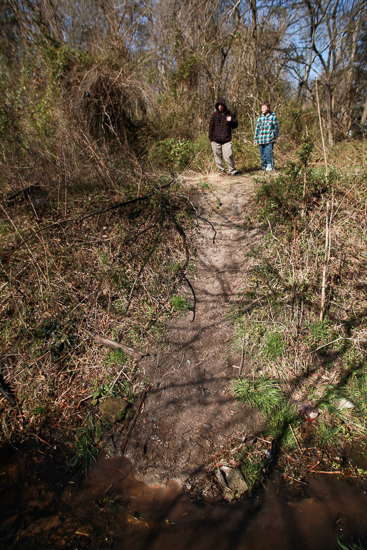
"I got a call from the property owner that the ditch was in disrepair," said Rowe (below left, with volunteer Wilbur Levengood, Jr.), who had recently learned about Project Clean Stream through the Choptank Tributary Team, a volunteer watershed group from Easton, Md. "To be honest, I didn't know this was back here."
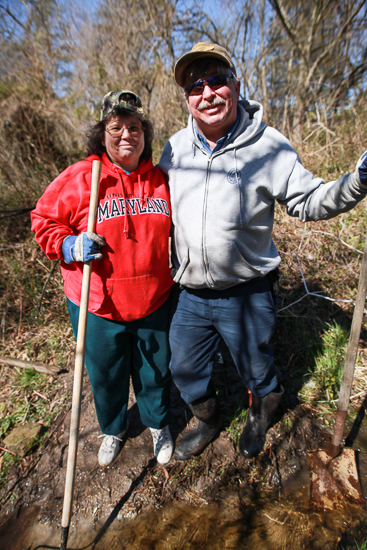
Jennifer Dindinger chairs the Choptank Trib Team, which was searching for neglected sites in neighboring Caroline County where they could make a bigger impact during this year's Project Clean Stream effort. "You don't see trash floating down the Choptank River, but there are places like this that, although it might not end up in the main stem of the Bay, negatively impact life along the tributaries to the river."
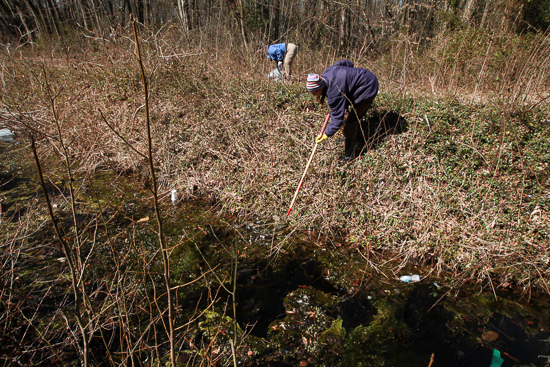

Despite the strong odor and armed with garden rakes and stainless steel dip nets, Project Clean Stream volunteers spent their Saturday morning combing through layers of algae in the stagnant drainage ditch. "It's just a nice thing to do on a sunny day," said William Ryall, a fellow Choptank Trib Team volunteer and wetland restoration engineer from Easton, Md. "All of these ditches are connected to the Bay, so it's really important to get this stuff out of here."
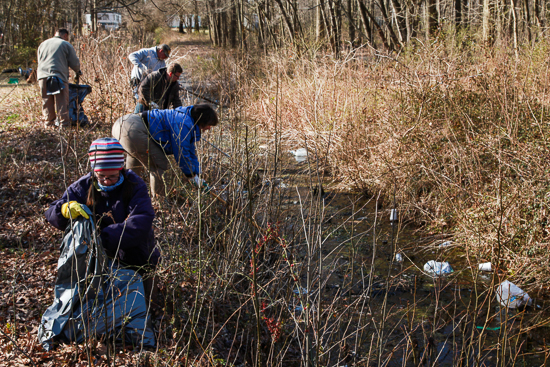
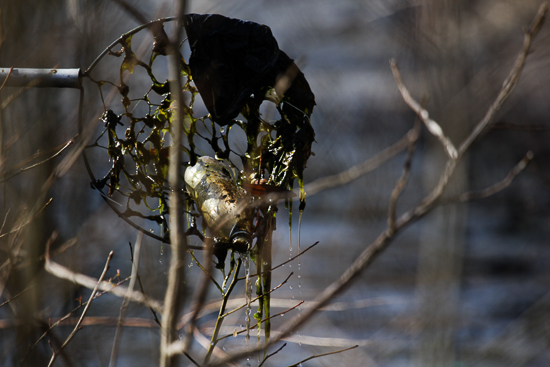
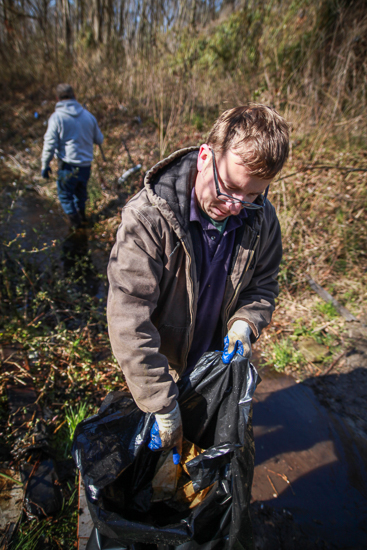
"We need everyone to understand how important the drainage is to the Eastern Shore of Maryland, and what it will do health-wise and for the environment if we do it correctly," said Wilbur Levengood, Jr., president of the Caroline County Commissioners. "We don't need to bring huge machines in here and disturb a lot of earth to achieve the drainage, we just need to keep it clean."
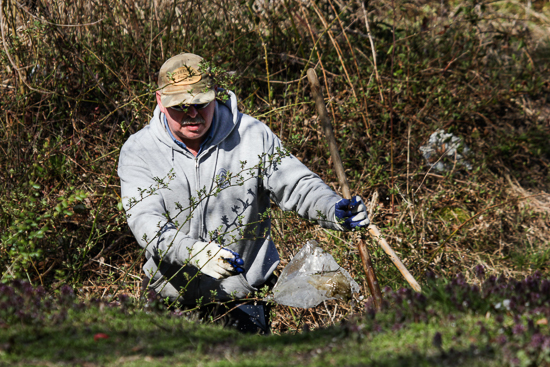
According to Levengood, the many drainage ditches in Caroline County are an environmental compromise critical to this landscape. "Without these ditches, ponds and wetlands like the one next door to here would otherwise require chemical pesticides to control the mosquito population. Cleaning up the trash will lower the water level in this ditch by a few inches and get the water moving again."
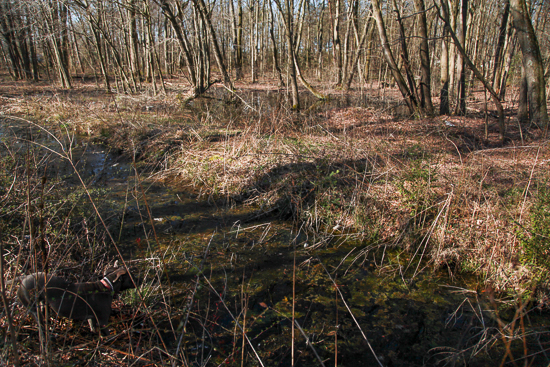
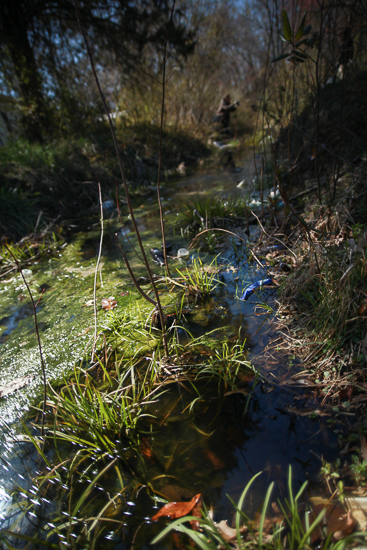
While most of the trash collected from the Marydel site was of the household variety--36 bags total, including diapers, beverage containers and rotting food--a tell-tale oil slick is evidence of even more hazardous materials lying beneath the surface.
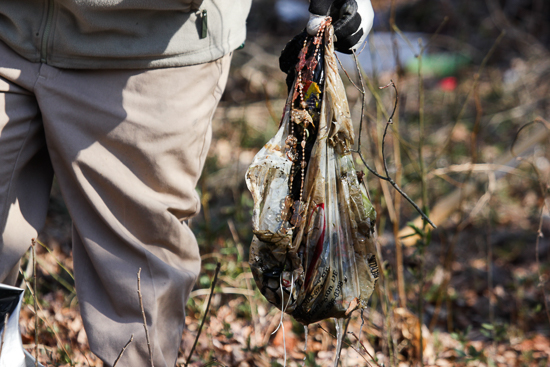
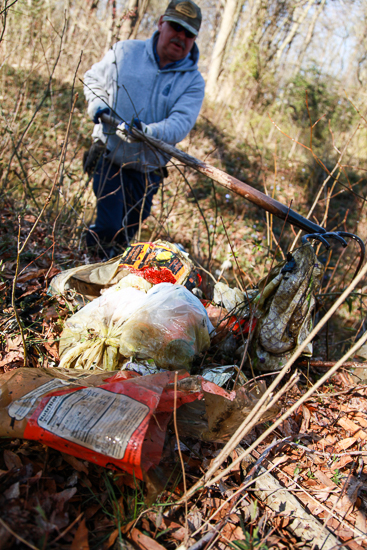
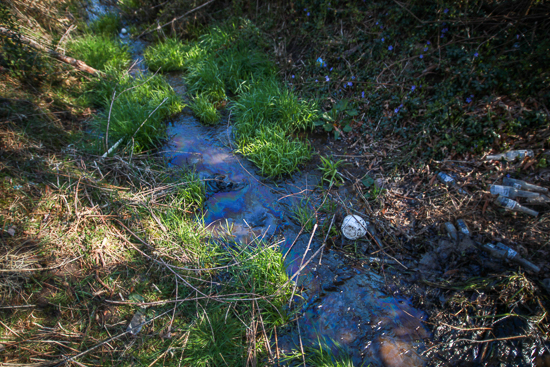
According to Levengood, non-salvageable appliances like television sets and mattresses, as well as toxic materials like motor oil and other automotive fluids that cost money to discard, are often thrown into the drainage ditches along Caroline County roads.
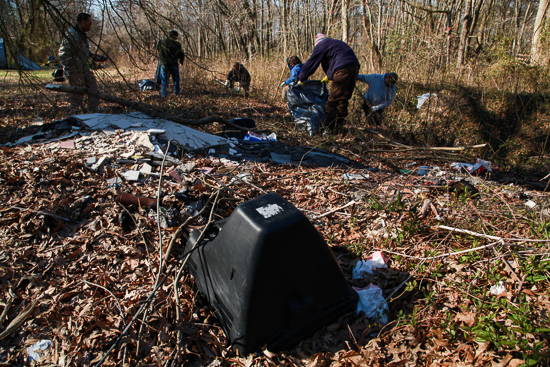
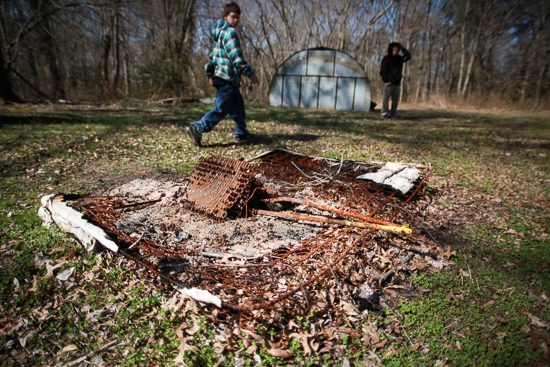
"It's not just necessarily that it looks bad. It's an all-around health hazard, and if we don't keep the water going it's just going to get stagnant and cause mosquitoes and more problems," said Mayor Rowe, who recruited local youth to help with the cleanup. "Now that we know it's here, we can all help as a community to help keep it clean and it'll be safe for everybody."
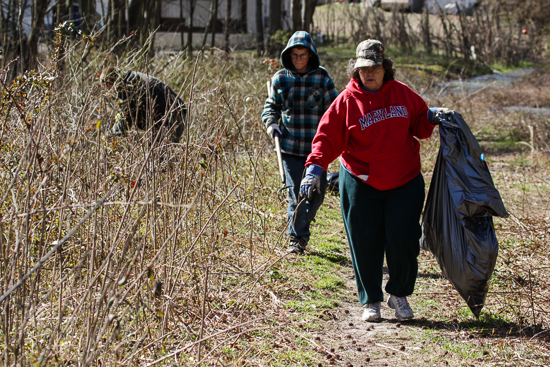
"My mom is friends with Ms. Debbie [Rowe], so she asked if I could come help with cleaning up trash from the ditch," said Gary Colby of Marydel (top), who in turn recruited his friend Daniel Santangelo. "I just wanted to help out Marydel," Santangelo said.
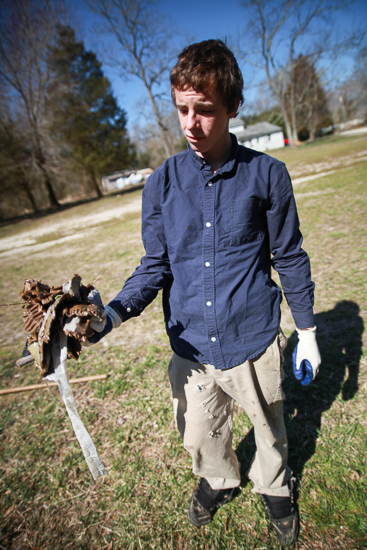
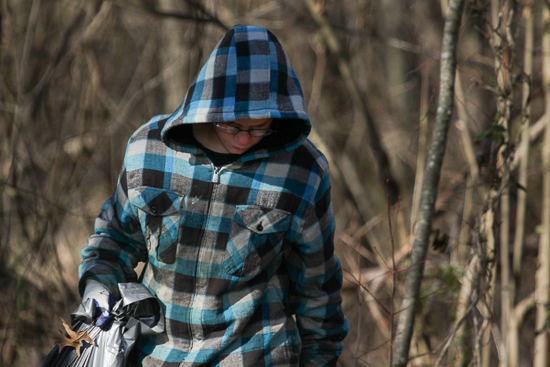
According to Rowe, part of the dumping problem stems from the challenge of cross-cultural communication. More than half of Marydel's population are Hispanic or Latino immigrants, but today's effort to reach the town's young people seems to be paying off.
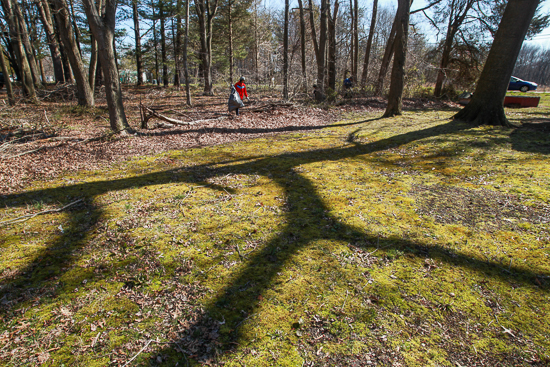
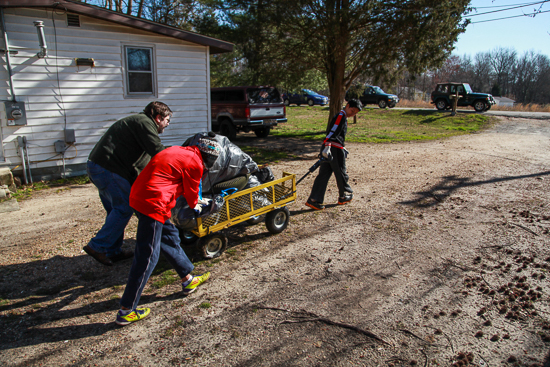
"I just offered to help my buddies out," said Carlos Martinez (left), who moved to Marydel last year from Mexico City and volunteered with friends Omar Fuentes (center) and Jordy Cordova (right). "I know it's not young people littering because I know my friends."
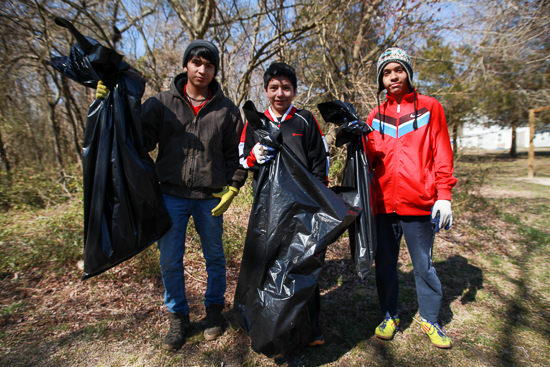
"I think we just need to recycle more," said Cordova. Fuentes agrees. Like Mayor Rowe, he says "I never even noticed the trash in the ditch, and I've lived here for 10 years."

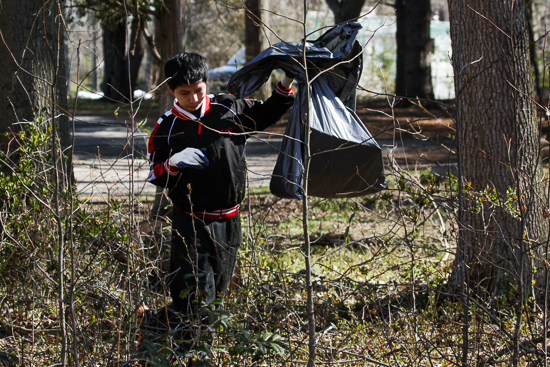
During a well-deserved break from the cleanup, Mayor Rowe and the other volunteers discussed the idea of posting bilingual signs to explain the ditch's importance in controlling the mosquito population, and to warn of health risks associated with litter and water pollution. Omar Fuentes and Jordy Cordova agree that signs in Spanish might help curb the littering problem, and promised to talk to their neighbors about the ditch. For first-time cleanup volunteer Wilbur Levengood, Jr., this point made the purpose of the day's effort overwhelmingly clear: "This project puts all aspects of people together working for the better, and we just need more of that."
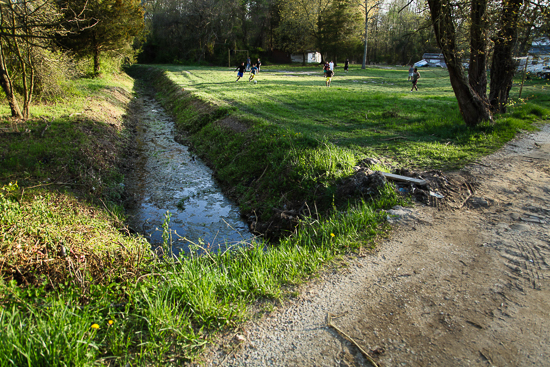

Comments
That is a great article. Its nice to see a town come together and thanks to Mayor Rowe for organizing the effort and always looking out for her community!
Great job Jennifer, Will, Diane and other Trib Team members and all the volunteers that joined in the clean up operation!
This is an excellent photo essay that tells the story of why it's important to keep our waterways (and areas surrounding them) clean--and how to educate and involve the community in this effort. Kudos to the Marydel team!
Thank you!
Your comment has been received. Before it can be published, the comment will be reviewed by our team to ensure it adheres with our rules of engagement.
Back to recent stories